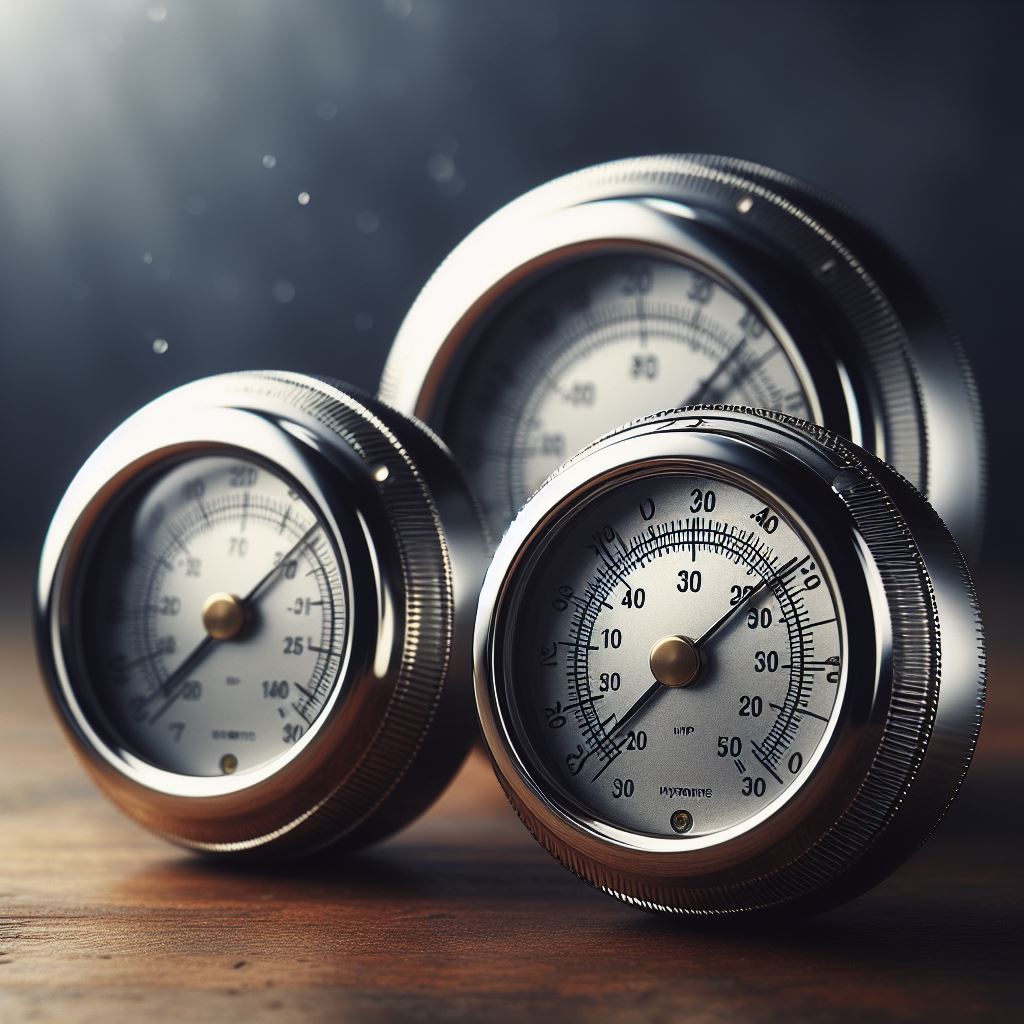
There are times in the summer when it’s so hot that the air feels like it could be cut with a knife. Or maybe those very cold winter nights that make your skin dry and cracked? One important but often overlooked part of our daily lives that affects our health is humidity. This blog is an excellent overview of humidity, hygrometers, and uses of hygrometers.
WHAT IS HUMIDITY?
Humidity is an essential aspect of the atmosphere, describing the quantity of water vapor in the air.
Humidity is usually shown as a percentage and indicates the amount of water vapor in the air relative to the maximum it could hold at a specific temperature. Relative humidity is a commonly used term to describe this measurement. A hygrometer is an instrument used to measure humidity.
WHAT IS A HYGROMETER?
Instruments have been created to measure various parameters, and one such instrument is the hygrometer. Leonardo Da Vinci originally invented it, and it has since been modified by others. A basic mechanical hygrometer utilizes just a single hair to measure the humidity levels. The hair is connected to a spring and dial. As the humidity rises, the hair reacts by contracting, causing the spring and dial hand to be pulled. When the humidity decreases, the spring relaxes, causing the dial hand to move in the opposite direction.
An electronic hygrometer provides a more precise measurement.
USES OF HYGROMETER
Agriculture:
Ensuring the right humidity levels in greenhouses is crucial for promoting healthy plant growth and fending off diseases.
Industrial Processes
It’s important to have hygrometers to monitor humidity levels in industrial settings. It’s vital to monitor moisture levels in manufacturing processes and product quality. Having a hygrometer can help ensure that humidity levels are within the normal range.
Weather Prediction
Weather stations can’t work without hygrometers, which are used to measure the dampness of the air.
These instruments provide critical data for weather forecasts by detecting moisture content and assisting in the calculation of the dew point, which is critical for predicting precipitation and determining atmospheric stability.
Hygrometers are also used to study climate because they let scientists look at long-term weather trends and climate changes. Their job includes predicting bad weather, helping farmers plan their crops, figuring out the risk of wildfires, and improving aviation weather tracking to make flights safer.
In essence, hygrometers play a multifaceted role in weather stations, providing critical information for a wide range of meteorological applications.
Food Preservation
Moisture control is compulsory to prevent microorganism growth such as fungi in food. Hygrometers are used to check moisture levels while preserving food.
Electronics Storage:
Protecting electronic equipment by monitoring and controlling humidity to prevent damage from moisture.
Museums
It may not be well known, but moisture is the prime thing to avoid when handling or storing artifacts or old books in a museum hence hygrometers find use in such establishments as well.
SHOP FOR HYGROMETERS ONLINE
SS Hussain is thrilled to offer you the most incredible selection of hygrometers available online in the Pakistani market. Our hygrometers are guaranteed to exceed your expectations. With a wide range of applications, this instrument is truly versatile and indispensable.
